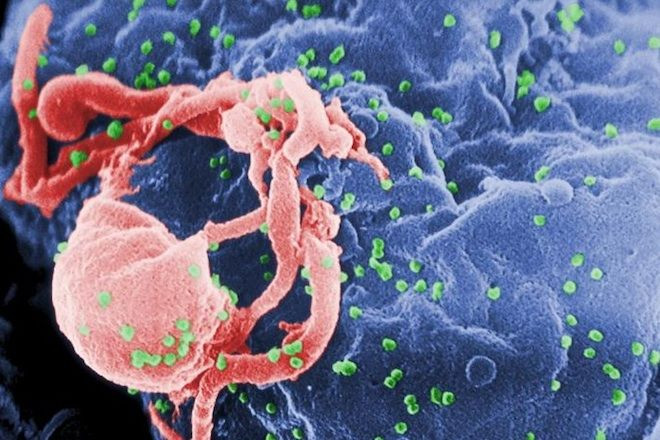
HIV's cure may be one step closer. Scientists at University College London have uncovered a molecular cloaking technique used by the HIV virus that enables it to become invisible within human cells, preventing the body's natural defense systems from reacting. The latest discovery may help scientists to find a drug that can 'uncloak' the virus, thereby allowing the body's natural immune system to stop the virus from replicating. The team of scientists identified two molecules inside host cells that are utilized by HIV that prevent the virus from reproducing its genetic material too quickly: this brief stasis shields the virus from the immune system's alarm.
The HIV study was led by Professor Greg Towers of Wellcome Trust Senior Research Fellow at University College London. Professor Towers maintained that "There's a great deal more research needed but the potential for this approach is huge, as a possible treatment in itself but also as a complement to existing therapies. We're also interested to see whether blocking these cloaking molecules can help to boost immune responses to experimental vaccines against HIV or be used to protect against HIV transmission." Towers explained that the findings solve the mystery of how HIV was able to replicate without alerting the body's anti-viral programme.
"HIV is extremely adept at hiding from our body's natural defences which is part of the reason the virus is so dangerous," Professor Towers continued. "Now we've identified the virus' invisibility cloak and how to expose it, we've uncovered a weakness that could be exploited for new HIV treatments. There's a great deal more research needed, but the potential for this approach is huge - as a possible treatment in itself but also as a complement to existing therapies. We're also interested to see whether blocking these cloaking molecules can help to boost immune responses to experimental vaccines against HIV or be used to protect against HIV transmission."
© 2025 Latin Times. All rights reserved. Do not reproduce without permission.




